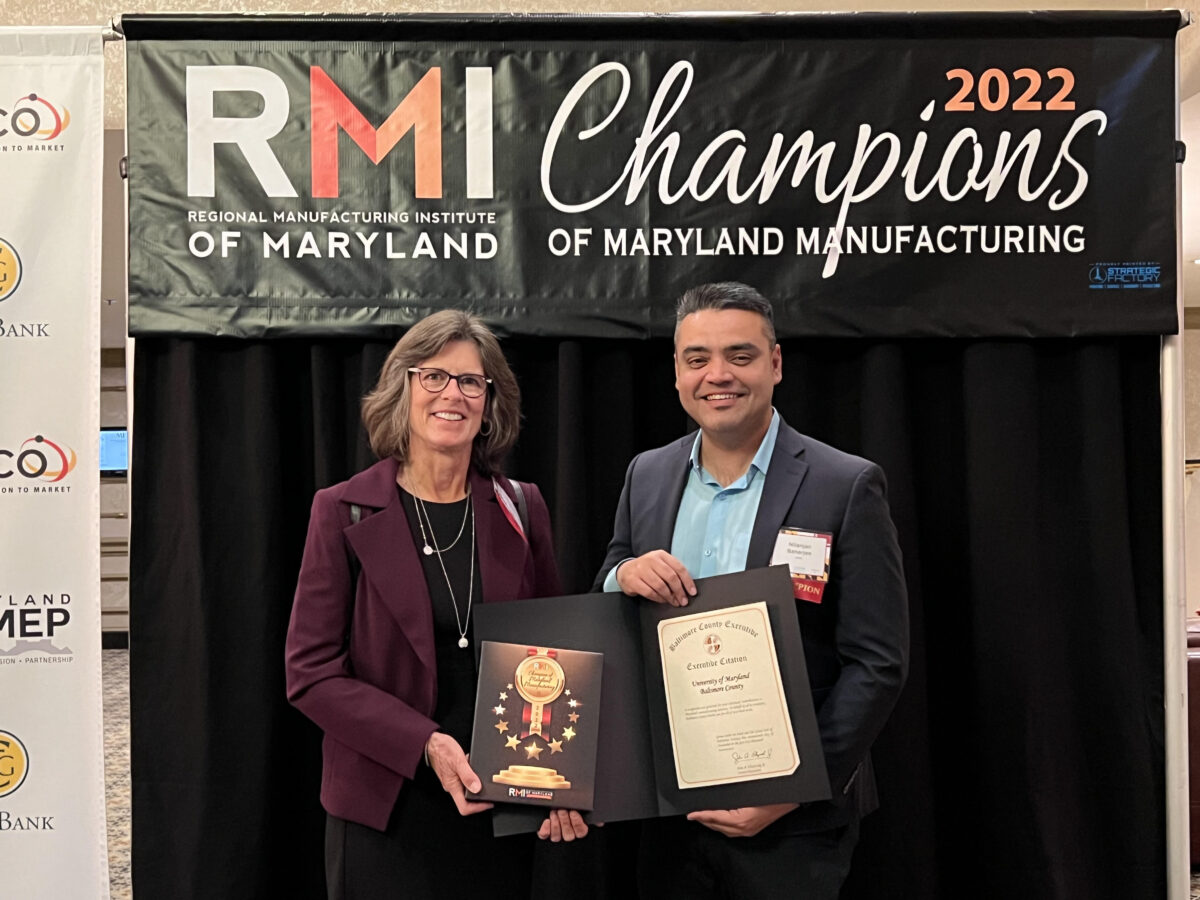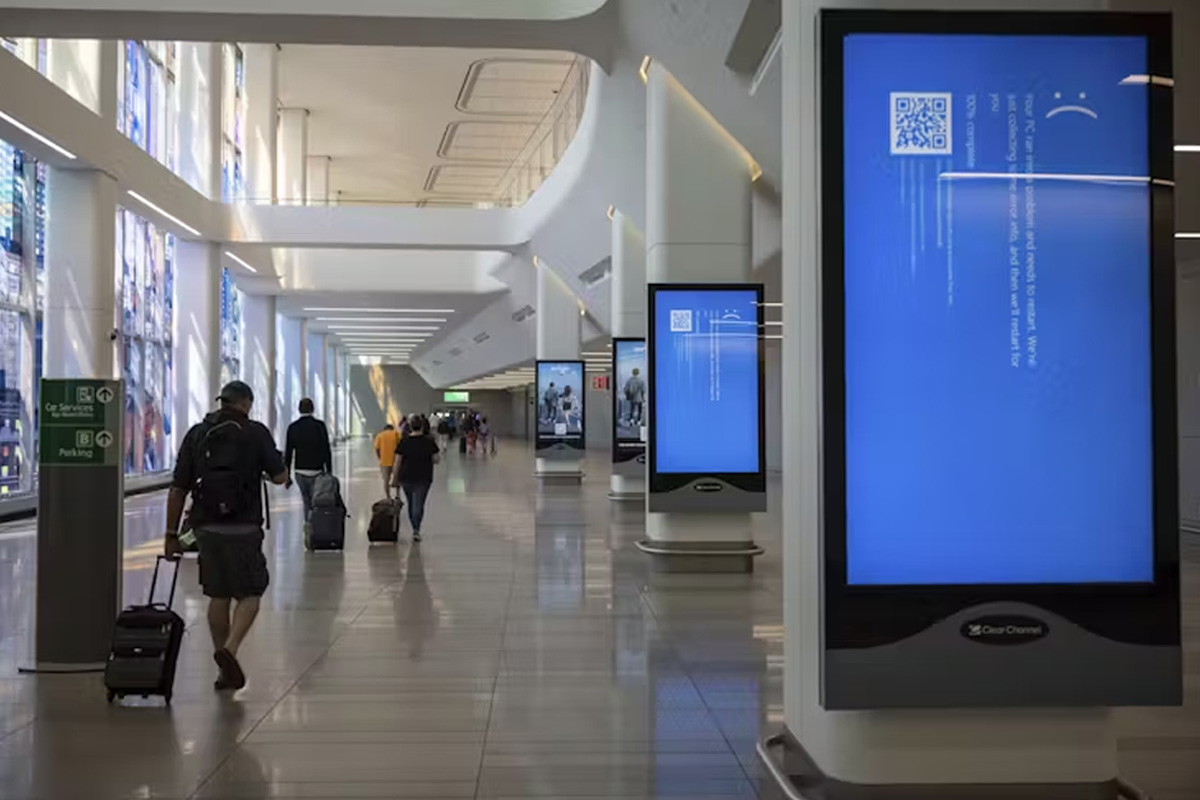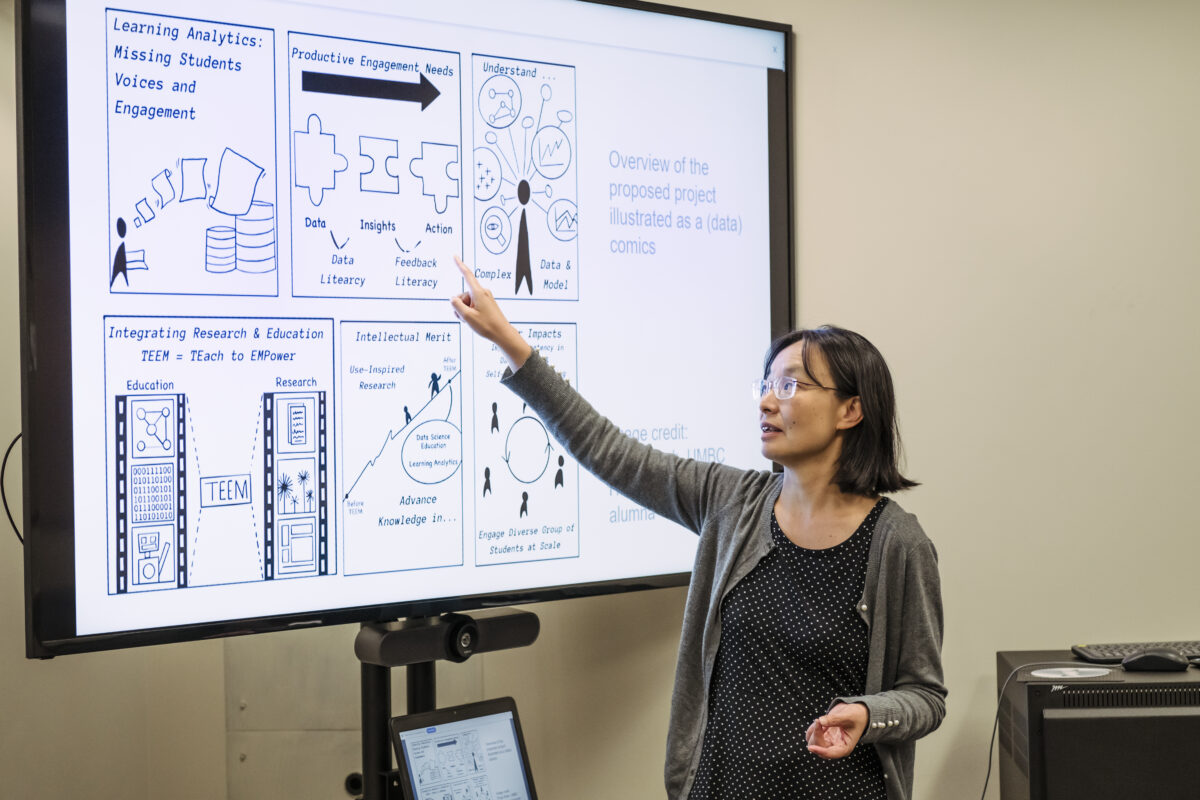UMBC researchers designed the Cybersecurity for Manufacturing Operational Technology (CyMOT) program to help manufacturing professionals grow their cybersecurity skills, protecting the sector from cyber threats and increasing their career opportunities. Now, the program has received significant additional funding to expand its impact.
The CyMOT program—launched in 2020 in collaboration with the Chicago-based MxD (Manufacturing x Digital) and UMBC Training Centers—has been renewed with a $1.2 million grant from the U.S. Department of Defense’s Office of Local Defense Community Cooperation (OLDCC). The funding will support the implementation of new training curricula around machine learning and cybersecurity.
“In recent years, there has been a large number of cyber attacks on the manufacturing sector,” says Nilanjan Banerjee, professor of computer science and electrical engineering and the grant’s principal investigator. To address this rising concern, Banerjee explains, CyMOT aims to “make sure that people that are in the manufacturing business can get trained and upskilled in cybersecurity concepts around manufacturing.”

Expanding the curriculum
The first initiative of the multi-phased project included developing a cybersecurity curriculum tailored for people who already worked in the manufacturing industry, building on their existing expertise. It provided training for a manufacturing cyber systems operator role and offered content through an online training platform.
The first cohort included 25 manufacturing professionals. In summer 2022, the program expanded when community college students in Chicago were invited to participate in a modified version of the course.
With this recent 12-month contract renewal, the next phase of the project will include courses for two more senior roles: a manufacturing artificial intelligence/machine learning engineer and an advanced manufacturing cybersecurity operator. This phase is slated to begin in February 2023. The additional funding will cover the cost for up to 150 new students interested in the programs.
Creating an operational technology cyber range at UMBC
As this program continues to grow, Banerjee also has a related objective in mind: building an operational technology (OT) cyber range at UMBC focused on cybersecurity in manufacturing.
“We will have equipment on campus with software to run exercises for small and medium manufacturing businesses in Maryland and students at UMBC,” Banerjee explains. “The cyber range will include red team-blue team exercises, as well as exercises to learn about cyber attacks on a company’s infrastructure. We will also conduct exercises around attacks at the interface between information technology networks and operational technology networks.”
With the cyber range, manufacturing professionals in the state can learn how to detect and mitigate cyberattacks through hands-on exercises using similar equipment found in a manufacturing OT environment.
The cyber range will be a unique resource for training and research in Maryland. It will also tie to several cybersecurity programs offered by UMBC and an apprenticeship program offered through the Maryland Extension Partnership (MEP). With emphasis on digitizing the manufacturing sector in Maryland at a time of continually increasing interconnectivity and automation (known as Industry 4.0), the cyber range will act as the testbed to train manufacturers across the state.
Workforce development in Maryland
Donna Ruginski, UMBC’s executive director of cybersecurity initiatives and a co-PI of CyMOT, shares that the project has the potential to expand Maryland’s workforce development in a significant way, whether through curriculum development and delivery or an OT cyber range.

“As the manufacturing industry implements digital transformation to Industry 4.0, cybersecurity training resources have become more important,” says Ruginski. “There is a shortage of people who can do cyber-related jobs. CyMOT is an avenue to up-skill and train a talent base positioned to fill those gaps in the workforce.”
After getting its start with implementation in Chicago, CyMOT has attracted the attention of Maryland state agencies, such as the Department of Commerce, and has been recognized by leaders in manufacturing, such as the Regional Manufacturing Institute of Maryland (RMI). UMBC was named as one of RMI’s Champions of Maryland Manufacturing at its 2022 Maryland Manufacturing Celebration, held earlier this fall.

On behalf of UMBC, Banerjee and Ruginski accepted an executive citation in recognition of CyMOT’s contributions to Maryland’s manufacturing industry.
“It is a great honor to be awarded an RMI Champions award,” says Banerjee. “The work around cybersecurity training and research performed at UMBC is having a true impact on growing the workforce and digitizing the regional manufacturing ecosystem, and the award is testimony to that fact.”
Tags: COEIT, CSEE, Cybersecurity, Research




